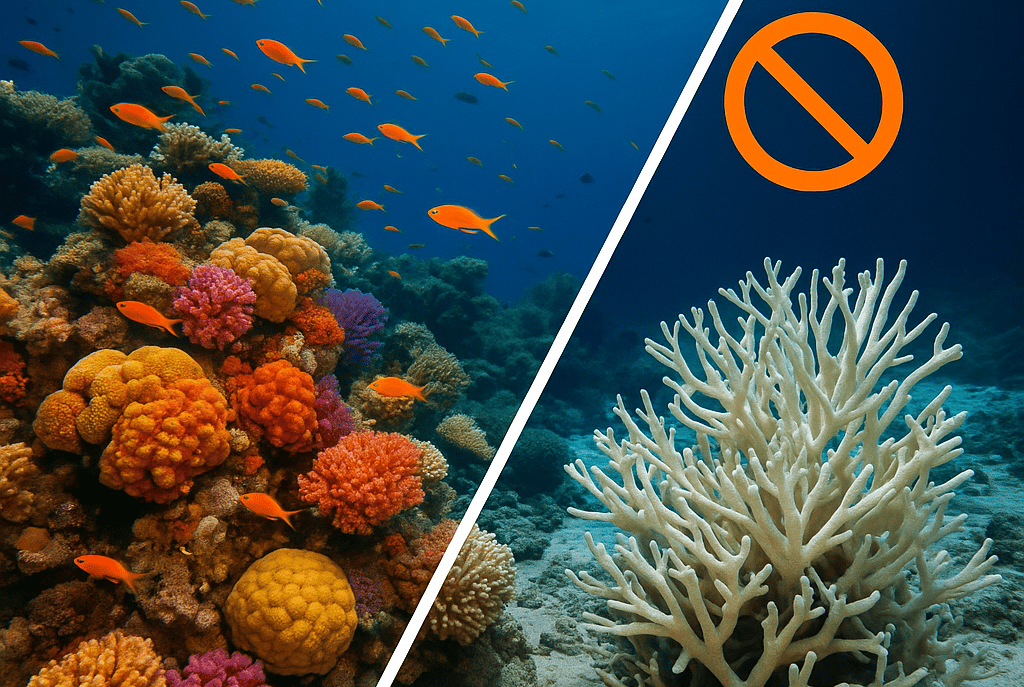Our identity pulses from the depths of the sea

Ruins Beneath the Waves
Why are coral reefs dying? A silent catastrophe beneath the sea.
Wisam Nidal Youssef Sheikh
8/6/20252 min read


Imagine a forest bursting with colors and life — but it’s not on land… it lies beneath the surface of the sea.
This forest is the coral reef, home to over 4,000 — and possibly up to 8,000 — species of fish. It also serves as a natural barrier that protects coastlines from storms.
Yet, these natural wonders are silently disappearing, dying before our eyes without many noticing.
So, what is happening to coral reefs? And why are they vanishing at such an alarming rate?
First: Deadly Ocean Heat
The rise in ocean temperature is one of the most dangerous threats. When the water gets too warm, coral reefs expel the tiny algae living in their tissues — algae that are a main source of food.
This process is called “coral bleaching,” and it marks the beginning of a slow death.
Oceans absorb most of the excess heat caused by the buildup of greenhouse gases in the atmosphere — a result of cars, factories, power plants, and waste burning — which leads to serious damage to marine life, especially coral reefs.
Second: Invisible Pollution That Kills
Chemicals from agriculture, industry, sewage, and even tiny plastic particles make their way into the sea. These pollutants affect coral health, cause diseases, and lead to their erosion and disappearance.
Third: Destructive Fishing and Irresponsible Tourism
Overfishing using explosives or harmful chemicals destroys the fragile coral structures. Even careless tourism — such as stepping on coral with fins or anchoring boats directly on reefs — causes irreparable damage.
When the Ocean Turns Acidic, Hope Dissolves
As the ocean absorbs large amounts of carbon dioxide, it becomes more acidic. This acidity weakens the coral’s ability to build its calcium skeleton, making it more vulnerable to erosion and collapse.
Coral reefs are not just beautiful marine decorations — they are complex and interconnected ecosystems. Their disappearance means the loss of thousands of species, the collapse of food chains, and massive economic, touristic, and health losses.
Saving coral reefs doesn’t require miracles. It begins with our daily choices.
What Can We Do?
Reduce plastic use and dispose of waste properly.
Support environmental policies — both local and global.
Plant greenery at home.
Limit air conditioning use to reduce heat.
Take responsibility for our everyday habits.
The ocean doesn’t scream…
But it suffers in silence.
© 2025 Mawj – All rights reserved
MAWJ
Our identity pulses from the depths of the sea
